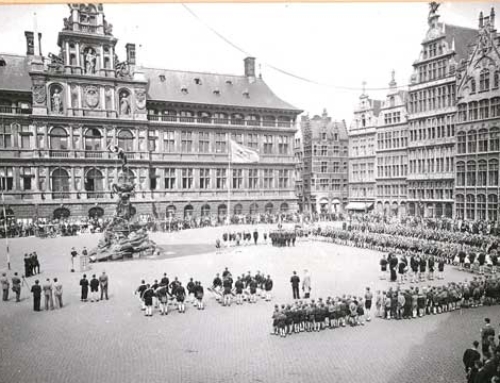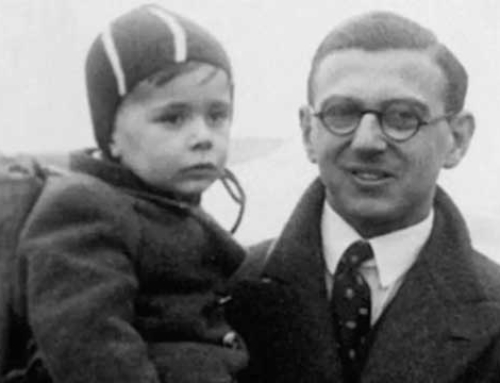This article focuses on the extensive and multifaceted history of jews and jewish communities in Islamic countries, a relationship that spans many centuries and is characterized by both periods of mutual coexistence and cultural flourishing as well as moments of tension and discrimination.
My goal is to paint a balanced and nuanced picture of this complex history. I explore how jewish communities have been an integral part of the Islamic world and how their experiences and fates have been influenced by the political, social, and economic context of their time. By highlighting both moments of harmonious living and the challenges and setbacks, I aim to provide a deep understanding of the dynamic relationship between Jewish communities and the Islamic world through the centuries.
The early Islamic period (7th-11th century)
The emergence of Islam and early interactions with Jewish communities
The emergence of Islam in the 7th century marked a significant change in the Arabian Peninsula. This new religious movement, founded by the Prophet Mohammed, came into contact with various cultures and religions, including jewish communities. During this period, several jewish tribes were present in the Arabian Peninsula, mainly in Medina. The interaction between early Muslims and jews was complex, ranging from cooperation to conflicts, depending on political and social circumstances.
Description of the dhimmi system and the protected status of jews
After the establishment of the Islamic caliphate, jews, like Christians, were considered “dhimmis” or protected persons. This dhimmi system was based on the dhimma agreement, which offered protection to non-Muslims in exchange for a special tax, known as jizya. Despite certain restrictions, such as not being allowed to hold certain political positions, jews enjoyed a considerable degree of religious freedom. They were allowed to exercise their own jurisdiction and had the right to maintain their religious practices and traditions.
Examples of coexistence and cultural exchange
The early Islamic period is characterized by moments of flourishing coexistence and cultural exchange between Muslims and jews. In various Islamic empires, such as the Caliphate of Cordoba in Spain, jews lived side by side with Muslims and Christians. This period saw the emergence of jewish scholars who contributed to Arab science, philosophy, and literature. A well-known example is the jewish philosopher and physician Maimonides, who lived and worked during this period. He wrote in Arabic, and his works influenced both Islamic and jewish thought worlds.
The golden age in the Islamic world (9th-12th century)
The flourishing of jewish culture in places like Spain and the middle east
The Golden Age of Islam, a period of great intellectual, economic, and cultural prosperity, was also a period of remarkable development for the jewish communities in the Islamic world. In particular, in Al-Andalus (today’s Spain and Portugal), jews experienced an era of unprecedented cultural and social growth. Jewish communities enjoyed relative tolerance and actively participated in the intellectual and cultural life of society. This was also true in various parts of the Middle East, where jewish communities flourished under Islamic governance.
Contributions of jewish thinkers and scientists to Islamic civilization
During this period, jewish scholars and scientists made significant contributions to the advancement of Islamic civilization. In fields such as philosophy, medicine, mathematics, and astronomy, jewish thinkers were not only influential within their own communities but also in the broader Islamic world. One of the most prominent figures was Maimonides, also known as Moses ben Maimon, whose works were admired in both jewish and Islamic circles. His philosophical and theological works, combining Aristotelian philosophy and jewish thought, had a lasting impact.
Stories of harmonious cooperation
There are numerous stories and anecdotes that illustrate the harmonious cooperation and mutual respect between jews and Muslims during this period. In cities like Cordoba and Baghdad, jews worked alongside Muslims and Christians in various fields. This cooperation led to a rich exchange of ideas and fostered a culture of intellectual and artistic flourishing. This climate of tolerance and cooperation created fertile ground for jewish communities to experience a golden age of cultural and intellectual achievements.
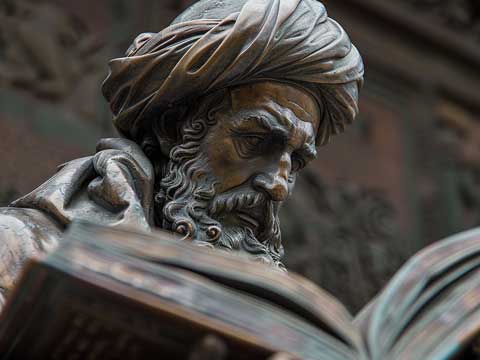
Periods of tensions and discrimination (11th-15th century)
Causes of changing attitudes and increase in discrimination
The period between the 11th and 15th century was marked by increasing tensions and discrimination against jewish communities in the Islamic world, as well as in Europe. This change in attitude can be attributed to several factors, including political instability, economic crises, and a strengthening of religious fundamentalism. In the Islamic world, the rise of more conservative dynasties and the decline of central power often led to stricter interpretations of sharia, resulting in harsher restrictions for dhimmis, including jews.
Specific examples of persecution and forced conversions
During this period, there are numerous reports of persecutions and forced conversions of jewish communities. One of the most tragic examples occurred in 1066 in Granada, where a large jewish community was massacred by an enraged mob, fueled by political and social unrest. In other cases, jews were forced to choose between conversion to Islam or death, such as during the reign of the Almohads in North Africa and Al-Andalus in the 12th century.
Impact of the crusades and Mongol invasions on jewish communities
The crusades and Mongol invasions also had a profound impact on jewish communities. The crusades, which began in the late 11th century, not only led to great destructions in the Islamic world but also to mass slaughters of jews in Europe and the Holy Land. Jewish communities were often caught between two fires, targeted by Crusaders who saw them as enemies of Christianity and as scapegoats in times of crisis.
The Mongol invasions of the 13th century brought further destruction and disruption, although some jewish communities in Mongol territories enjoyed some degree of protection and freedom under the relatively tolerant Mongol regime.
The Ottoman Empire and the jews (15th-19th century)
The reception of jewish refugees from Spain
The end of the 15th century was a turning point for many jewish communities, especially after the Alhambra Decree in 1492, where the Catholic Monarchs of Spain, Ferdinand and Isabella, ordered jews to convert to Christianity or leave the country. This led to a massive exodus of jews, many of whom sought refuge in the Ottoman Empire, where Sultan Bayezid II welcomed them. The sultan recognized the value of the jews as traders and craftsmen and offered them the opportunity to settle in cities across the empire, including Constantinople, Salonika, and Sarajevo. This hospitality was partly motivated by pragmatism and the desire to strengthen the empire’s economy.
The role of jews in Ottoman economic and social life
In the Ottoman Empire, jewish communities played a crucial role in economic and social life. They were involved in a wide range of professions, from trade and finance to crafts and agriculture. Jewish merchants were essential in facilitating trade between the Ottoman Empire and other parts of the world, thanks to their extensive networks and multilingual skills. Additionally, jewish doctors, scholars, and craftsmen contributed to the cultural and scientific development of the empire. Their contributions were recognized and appreciated by the Ottoman authorities, who often practiced a policy of religious tolerance.
Examples of tolerance and integration
The Ottoman Empire was known for its relatively tolerant attitude towards different religious and ethnic groups. Jewish communities enjoyed a considerable degree of autonomy, allowed to manage their own religious and legal affairs through a system known as the Millet system. This system enabled them to follow their religious laws and choose their own leaders. A notable example of integration and cooperation can be found in the city of Salonika (today’s Thessaloniki in Greece), which was known as the “Jerusalem of the Balkans.” Here, jews formed the majority of the population and played a central role in the economic and cultural life of the city.
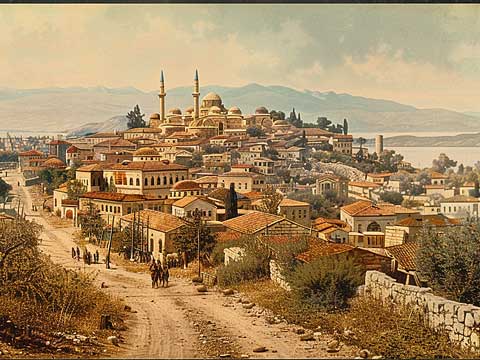
Jews during the modern era and colonialism (19th-20th century)
Impact of western Colonialism and nationalist movements on jewish communities
During the modern era, the expansion of Western colonialism and the rise of nationalist movements had a profound impact on jewish communities worldwide, including those in Islamic countries. Colonial powers such as Britain and France took control of various parts of the Islamic world, leading to significant political and social changes.
These changes often affected the local jewish communities, both positively and negatively. On one hand, European colonial regimes sometimes provided more religious freedom and equality for jews under their rule. On the other hand, they also fueled nationalist sentiments, which sometimes resulted in tensions between jewish and non-jewish communities.
Changes in the status of jews in the Islamic world
The impact of colonialism and the rise of nationalist movements also led to changes in the status of jews in the Islamic world. In some areas, the introduction of modern ideas and the concept of the nation-state led to better protection and more rights for jewish citizens. However, in other cases, these changes increased tensions, particularly where nationalist movements viewed the jewish population as outsiders or allies of colonial powers.
This period also saw an increase in migration of jewish communities from Islamic countries to new areas, including the territory that would later become the state of Israel. This migration was partly driven by the search for a safer and more prosperous life, but also by the Zionist movement, which advocated for the restoration of a jewish state in the historical homeland.
The formation of Israel and jewish migration (20th century)
The establishment of Israel and its consequences for jewish communities in Islamic countries
The establishment of the state of Israel in 1948 was a monumental moment in history, not only for the jewish population but also for the entire region. For many jews, the establishment of a jewish state represented the realization of the Zionist dream, a safe haven after centuries of persecution. However, the establishment of Israel also had profound consequences for relations between jewish and Islamic communities. In many Islamic countries, the establishment of Israel led to increased tensions and conflicts, often resulting in a deterioration of the situation of jewish communities. In some cases, jews were forced to emigrate due to direct persecution or increasing social and economic pressures.
Mass migration of jews to Israel and other countries
The establishment of Israel led to an unprecedented wave of migration. Hundreds of thousands of jews from Europe, the Middle East, and North Africa sought refuge in the new state, looking for safety and a new start. This migration was not only the result of the attraction of a jewish state but also driven by the deteriorating conditions for jewish communities in many Islamic countries. The massive arrival of immigrants had a significant impact on the demographic and cultural composition of Israel. It also posed challenges in terms of integration and economic development, as the young state had to accommodate the large influx of new citizens. This period marks a significant shift in the jewish diaspora, with a central focus on Israel as the new homeland for many jews worldwide.
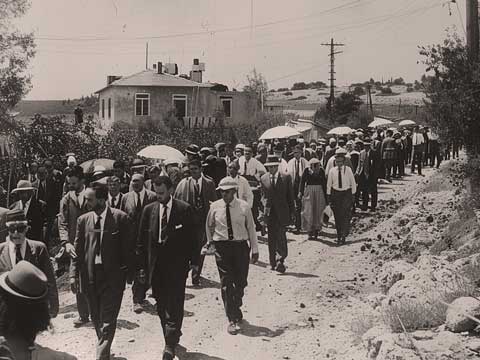
Current situation (21st century)
Analysis of current relations between jewish communities and Islamic countries
In the 21st century, relations between jewish communities and Islamic countries remain complex and vary greatly by region and country. While some Islamic countries have made steps towards the normalization of relations with Israel, old conflicts and tensions persist in other areas. Recent years have seen several notable developments, such as the Abraham Accords, in which several Islamic countries, including the United Arab Emirates and Bahrain, formally normalized their relations with Israel. These accords mark a significant shift in regional dynamics and offer new opportunities for cooperation in economic, technological, and cultural fields.
Recent initiatives for interreligious dialogue and peace
In addition to diplomatic efforts, there are numerous initiatives aimed at promoting interreligious dialogue and peace between jewish and Islamic communities. These initiatives range from academic conferences and cultural exchange programs to community projects aimed at building mutual understanding and respect. An example is the work of organizations such as the Interfaith Encounter Association, which regularly organizes meetings and dialogues between jews, Muslims, and Christians to break stereotypes and find common ground. These initiatives play a crucial role in reducing prejudices and building a future of coexistence and peace.
Conclusion
Overview of historical interactions and their complexity
The history of interactions between jewish communities and Islamic countries is deeply rooted and complex, ranging from periods of flourishing coexistence and mutual respect to times of conflicts and discrimination. From the early days of Islam, through the Golden Age of Islamic civilization, to the challenges and changes brought about by colonialism, the formation of the state of Israel, and contemporary geopolitical dynamics, this relationship has taken many forms. This history shows the potential for harmonious cooperation and cultural exchange but also highlights the dangers of misunderstandings, prejudices, and political manipulation.
Reflection on the importance of historical awareness for contemporary relations
Understanding this rich and layered history is essential for building a future of peaceful coexistence and mutual respect between jewish and Islamic communities. Historical awareness provides crucial insights that can help contextualize contemporary conflicts, correct misunderstandings, and dismantle stereotypes. Recognizing the shared history and cultural exchanges can serve as a bridge to bridge the gap between communities. Furthermore, it underscores the need for dialogue, education, and cooperation as means to lay the foundations for lasting peace and mutual understanding. In an era where the world is becoming increasingly interconnected, the ability to learn from history and jointly seek solutions is more important than ever.



